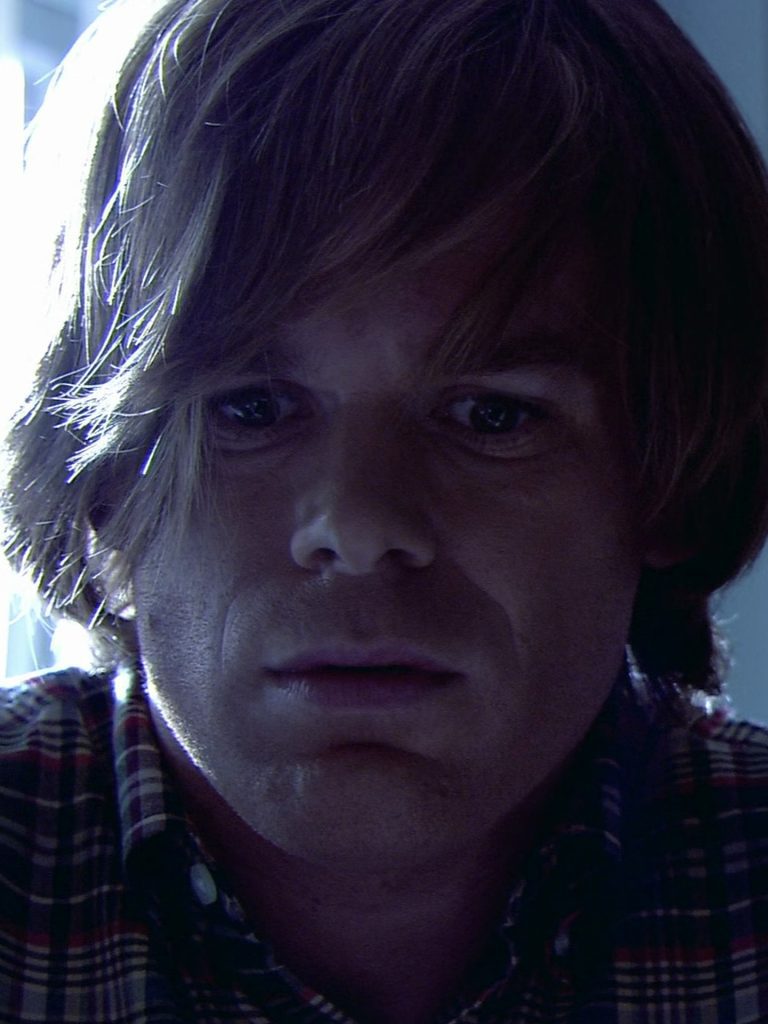Michael C. Hall Quietly Battled Cancer During Dexter — And No One Knew He Was Wearing a Wig While Filming
There are moments in Hollywood when strength hides in plain sight — behind a smile, behind a costume, behind a camera call sheet that doesn’t stop for anyone. Michael C. Hall lived one of those moments. While fans around the world watched him dominate screens as Dexter Morgan, the sharp, conflicted forensic analyst with a dark secret, few knew that behind the scenes, the actor was fighting a battle far more real — and far more personal.
In 2010, during the filming of the fourth season of Dexter, Michael C. Hall was diagnosed with Hodgkin’s lymphoma, a type of cancer that affects the body’s lymphatic system. He was just 38 years old, at the peak of his career, and playing one of television’s most complex characters. Yet, instead of stepping away from the spotlight, he chose to keep going. He quietly underwent chemotherapy and radiation treatments while continuing to film, never letting the illness interrupt the flow of the show that had defined his career.

Because chemotherapy often causes hair loss, Hall began to wear a wig on set to maintain Dexter’s distinct look — the familiar brown hair, neatly combed and fitting the image fans had grown used to. It was an invisible layer of courage. While his body endured the fatigue and pain of treatment, his professionalism never wavered. The audience never noticed a difference. His performance remained as intense, chilling, and magnetic as ever.
He later shared that he hadn’t planned to make his diagnosis public at first. “I had been diagnosed with Hodgkin’s lymphoma, and I thought I could keep it quiet,” he said in an interview. But as awards season approached, Hall decided to open up about what he was going through, partly to help others see that illness doesn’t define a person’s strength or capability. He accepted his Golden Globe that year with his trademark humility — and with a cap covering his head, his quiet bravery visible only to those who looked closely enough.

For fans, learning the truth afterward made his performance even more remarkable. It wasn’t just acting — it was endurance, both physical and emotional. He wasn’t just portraying a character juggling dual identities; he was living his own version of it — a man balancing work, fear, and hope, all under the weight of something no script could ever capture.
Hall’s story reminds people that courage doesn’t always come in grand gestures. Sometimes, it looks like showing up to work when you could easily stay home. It looks like memorizing lines when your body is weak. It looks like laughing with your crew and co-stars when you’re privately fighting something invisible. That quiet persistence, the kind that doesn’t demand attention, might be the most inspiring kind there is.
Thankfully, after months of treatment, Michael C. Hall went into full remission. He’s spoken since then about how the experience changed him — how it reshaped his understanding of life, mortality, and gratitude. It deepened his performances, too. When Dexter returned years later for its revival, fans saw a man who had aged, evolved, and endured — not just a character, but an actor who had truly lived through darkness and come out the other side.

Today, Michael C. Hall continues to work in film, television, and theater, bringing that same intensity and quiet wisdom to every project he touches. For those who know his story, watching him on screen feels different. There’s a layer of truth beneath his characters — a reminder that behind the fiction, there was once a real man who faced something terrifying and chose to keep creating anyway.
His decision to keep filming wasn’t just about professionalism. It was about holding onto something he loved — the art of storytelling — at a time when life felt fragile. And in doing so, he gave the world one of the strongest examples of resilience in Hollywood’s history.
Michael C. Hall didn’t let cancer stop him. He turned it into another story — one that proved even in pain, you can still shine.



